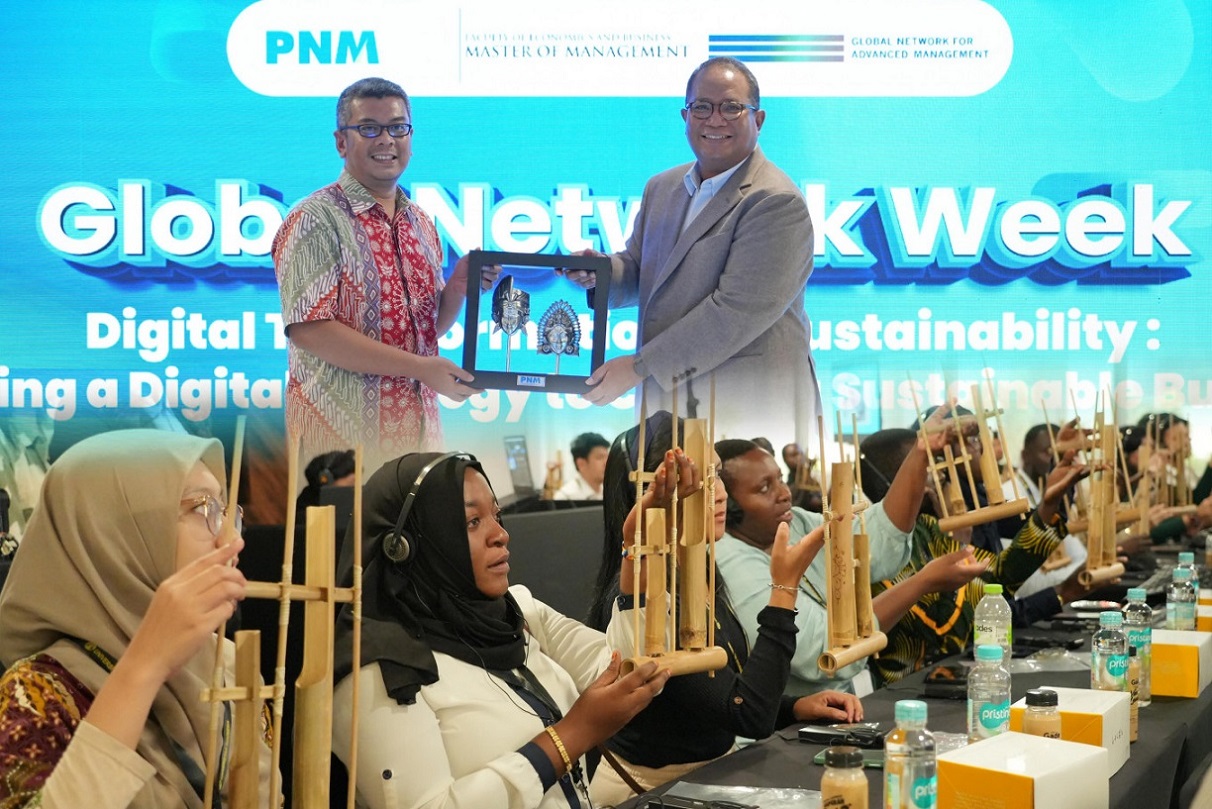News
PNM Discusses Social Re-engineering and Digital Transformation
Front Row (The Jakarta Post) October 23, 2024 (GNAM 2024)
(GNAM 2024)
PNM's commitment to empowering women micro-entrepreneurs to achieve economic independence caught the attention of participants in the 2024 Global Network for Advanced Management (GNAM), who visited PNM's headquarters recently.
As part of the Global Network Week activities, 117 MBA students from various countries exchanged insights with PNM's director of operations, Sunar Basuki.
During this study visit, Sunar introduced PNM's business model as a financial institution focused on empowering underprivileged women who are also micro-entrepreneurs, through financial, intellectual and social capital.
He also explained PNM Mekaar's social re-engineering strategy within its financing ecosystem, which has been fostering household-level economic growth.
"We encourage the women in these groups to support each other’s business growth, either through business synergies or by sharing business ideas during the weekly meetings," said Sunar.
Additionally, PNM highlighted its efforts toward digital transformation, which has proven challenging to implement among ultra-micro customers. The Technology Readiness Index (TRI) for PNM Mekaar customers is notably low, at just 2.29. However, this has motivated PNM to continue providing digital literacy and financial inclusion.
"In order to uplift the lower economic class, we must introduce them to digitalization and financial inclusion. Various training programs are provided, preparing them to scale their businesses to a larger level," Sunar added.
PNM's digital transformation is reflected in the launch of the PNM Digi Nasabah app, which helps users manage their financial records, pay installments, conduct digital financial transactions and more. It is also integrated with the Mekaar Digi app, designed for PNM's account officers (AOs) who assist the customers.
According to Arviansyah, secretary of the Master of Management Program at Universitas Indonesia, the ultra-finance model has a significant impact on the grassroots economy. "PNM doesn't just use technology to operate its business but also to empower. The social impact the company generates reaches down to the grassroots level," Arvi explained.
He also expressed hope that both domestic and international students would bring a positive perception of Indonesia's people-centered economic development back to their respective countries and implement it there.
The meeting also demonstrated that PNM's initiatives can serve as inspiration for global education. It is hoped that more collaborative initiatives will emerge in the future, aimed at improving the welfare of subsistence groups.
Source: www.thejakartapost.com
